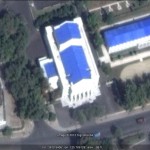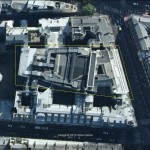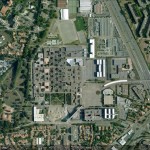Institute for Far Eastern Studies (IFES)
North Korea recently promoted its cooperation with foreign companies, highlighting a North Korean cement company that has received investment from a French corporation. This is viewed as a strategy by North Korea to attract foreign investment by publicizing examples of foreign capital in the country.
On September 1, 2015, North Korea uploaded an article on its foreign website ‘Naenara’ promoting the Pyongyang Sangwon Cement Joint Venture, which the French cement company Lafarge has invested in. President of the company Yun Chae Hyok was quoted as saying, “Through each other’s efforts the company is raising the quality of cement by expediting the modernization of the production process as well as increasing production to contribute actively to the country’s primary construction targets.”
Regarding the Sangwon Cement Joint Venture, the Naenara article stated, “The quality of limestone is good, the reserves are plentiful, and from a transportation perspective, the location is good […] The production process is automated, and the company is using supplementary materials, including limestone, in production, so the outlook is very good.” The article also introduced the company Lafarge. “The French building materials company Lafarge, which has more than 200 cement factories, is a corporation that specializes in the production of cement and plaster as well as aggregate and concrete,” it explained.
Naenara also reported that in 2014 the joint venture company built ‘Affiliate Furnace No. 1,’ and according to a decision made by the board of directors in June 2015, next year it will complete construction of ‘Affiliate Furnace No. 2.’ It is believed that North Korea’s intent in promoting the Sangwon Cement Joint Venture is to attract investment from other foreign companies by publicizing examples of foreign capital in the country.
The Pyongyang Sangwon Cement Joint Venture was created when Lafarge invested in North Korea’s Sangwon Cement Complex. In 2007 the Egyptian company Orascom, which is currently invested in North Korea’s Koryolink, acquired 50% of the shares in Sangwon Cement and prepared to invest in the company, but in December of that year it passed its shares and the related mining rights to Lafarge. At the time Lafarge commented, “Given the rapidly growing demand for cement in North Korea, the potential for Sangwon Cement Factory is large.” The company went on to update factory equipment and expand investment in machinery and facilities.



